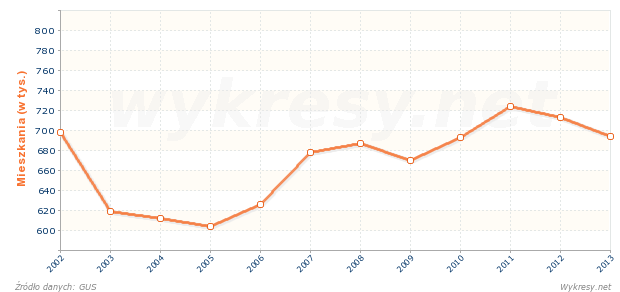Even if it is high, that's past generations. 'Only' 17.6% is, in any case, a curious statement. If you'd said 1.7% I'd have agreed to some extent. 17% is a different matter
It's not a statement 100% - 82.4% from that table equals 17,6%.
In all likelihood, the 82% would not be able to own if they were subject to the prices v income now, and that's a very important thing to think about, Monitor.
Why is it important to think about this alternative situation?
Prices are by any traditional measure far too high for 'average' Poles.
Traditionally in communism prices were I think around around 10 x higher than now. (if you don't count social communistic apartments which required to wait in queue for 20 years in order to get it)
And it's after all the Poles who deserve the same chance that should be considered first here, isn't it?
Live is not a game with equal rules for everybody on earth that you could say that somebody deserve something.
Btw the home ownership table you quoted is highest where intergenerational living is highest. That's not the same as really owning your own, individual dwelling.
Of course, when people cannot afford renting then they stay with parents, number of square meters per person goes down.
I agree with you that the situation in Poland is not easy. Taking mortgage for not so big apartment for 30 years can afford only marriages with good (close to average) earnings. Such salaries are available not for everybody and only in big cities. People in small towns usually don't earn enough to be able to put away over 200 000 PLN for a flat. That's why many people in small towns don't pay taxes, work illegally or work abroad in order to save for their home. So the situation is not hopeless. For many people there are possibilities.
It's not a good situation and people know it. That's why the topic of affordable apartments is repeating before every election. Currently there is some new program of subsidies to 1st apartment for young marriages too. Of course criticized, because it gives money to young people who can afford taking mortgage and pay own contribution - so it means above average rich young people. There is going to be some program of building some cheap renting houses. That's also partially the reason of previously mentioned housing bubble. Around 2004 government eased rules of getting mortgage. People became happy, that they can afford buying house, even that just with a credit. The bubble accelerated construction of houses, what influenced GDP growth.
So there is too little flats, that's why they're too expensive. New construction's speed is accelerating, but it seems too slow:

still much less is constructed than in communism.


 PolishForums LIVE / Archives [3]
PolishForums LIVE / Archives [3]
